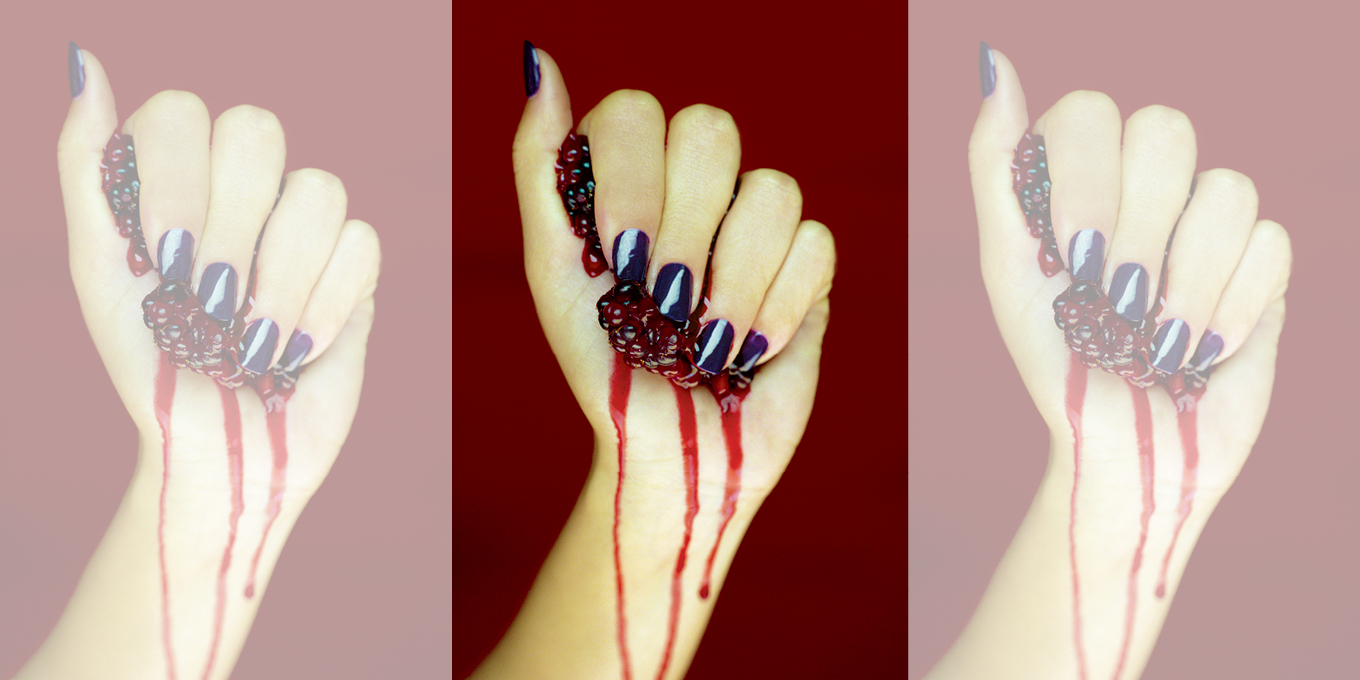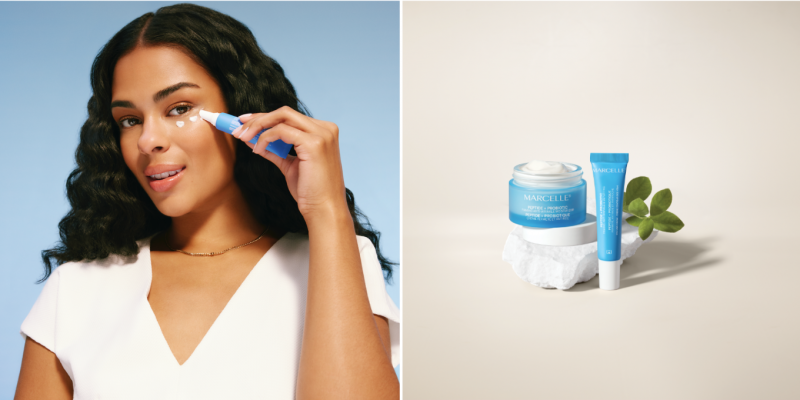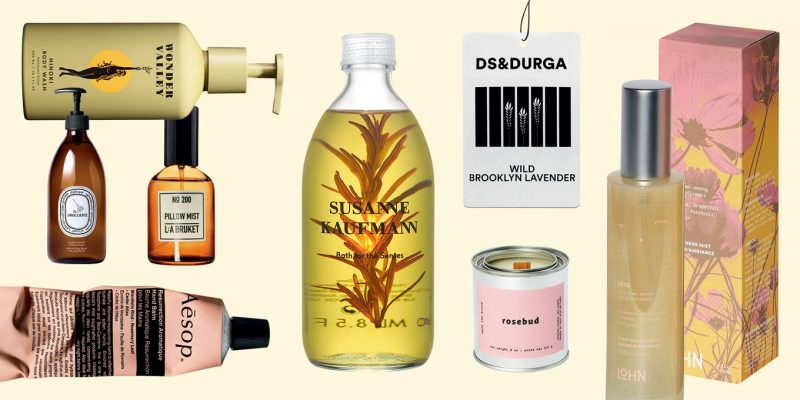Health & Fitness
Go With the Flow
Persistent myths, shame and misinformation over the millennia have made periods taboo, but the crimson tides are starting to turn.
by : Caitlin Stall-Paquet- Mar 23rd, 2021

Trunk
Last summer, like many people who were experiencing COVID-related stress, I started having irregular periods—they were showing up every two or three weeks. I was confused and trying to find reference points for my last one when a friend recommended that I start using a menstrual tracking app. Being at the start of my cycle, I downloaded one immediately and input symptoms like cramps and emotional sensitivity and documented my flow rate throughout the following week. Over the next few months, I would get notifications that I was about to start my cycle and reminders of the regularity of recent discomforts—prompts that normalized my experience and made me feel in control.
Clue and Flo are just a couple of the apps helping to redefine our relationship with menstruation, though they’re not reinventing the wheel. People have been marking red Xs on calendars for decades, but apps can collect our data in one place and translate it into useful information down the line. Amanda Laird, an author and holistic nutritionist who focuses on menstrual health, is a big promoter of people tracking their periods, no matter the method, to get better acquainted with their bodies. “We need to baseline our own normal—it’s so empowering,” she says. “When you understand that your cycle is important and that it’s just a bodily function, it takes all that opportunity for shame away.” Laird works hard to normalize period talk, in both her book about menstrual stigma, Heavy Flow, and her podcast of the same name. She maintains that changing our perspective on this essential function and undoing the faulty information we’ve been taught about our cycles are important steps in abolishing the oppressive system that made them taboo in the first place. (Spoiler: It’s the patriarchy.)
Owning our periods has been a long time coming. NPR deemed 2015 “the year of the period” because it took the spotlight in public discourse, a movement fuelled by attention-grabbing social-media images like poet Rupi Kaur’s blood-stained sheets and artist Kiran Gandhi running the London marathon while free bleeding into her leggings. The term “menstrual equity,” coined by Jennifer Weiss-Wolf, who wrote Periods Gone Public, also resulted from the 2015 rise in menstrual talk; it calls attention to the fact that many people have issues with access to safe and dignified periods. In Canada, activists successfully got the federal tax on menstrual products abolished that same year to help alleviate costs. However, we’re still lagging behind places like Scotland, which passed legislation in November 2020 to make period products completely free, becoming the first country in the world to do so.
The public conversation is still evolving. Last summer, I was both surprised and thrilled to see a detailed depiction of period sex in Michaela Coel’s hit TV series I May Destroy You. A few months later, Pantone splashed its social media with its new bright-red colour, “Period,” aiming to remove some of the still prevalent sanitization that shrouds menstruation. Then the latest season of the animated Netflix series Big Mouth, which might be providing better sex ed than most school boards, went all out with a whole episode devoted to a character’s heavy flow and first-time tampon use, complete with a talking vagina voiced by Kristen Wiig. And, thankfully, companies are starting to use red liquid in pad commercials and moving away from the mysterious blue substance that’s more reminiscent of mouthwash than anything produced by a body.
Since the onset of the pandemic, people have been stock-piling menstrual products, leading to the growing popularity of direct-to-consumer companies. In September, Sephora Canada started featuring organic pads and tampons from Vancouver-based company Blume on its website. This was the first time the beauty giant had joined the period game, hopefully signalling a shift in our perception of menstruation from a secretive aspect of feminine hygiene to a normal part of self-care. Reusable options like menstrual cups and absorbent period underwear are also gaining steam in our quest for sustainable options amid a growing climate crisis. Along with fulfilling ecological goals, reusables change a user’s relationship with their own flow. As Laird points out, to use them, “you need to get…comfortable with interacting with your own menstrual affluence. It can be messy, and that’s in direct opposition to everything you learned about menstruation. When you look at traditional products, the messaging is about keeping your period secret and keeping you clean and fresh.”
Though reusable products are important for waste reduction, higher upfront costs and the fact that they require running water mean they aren’t accessible to all. Sussanne Skidmore, volunteer co-chair for the United Way’s Period Promise campaign, highlights that “the reality is, [reusables are] not even on the radar for lots of folks…because they’re literally contemplating ‘What am I going to eat today?’” The British Columbia initiative started as a drive for collecting tampons and pads, partnering with Ontario’s Tampon Tuesdays. In 2017, it gathered 30,000 products, which disappeared almost immediately once they had been delivered to select transition houses, community centres and refugee service centres. Two years later, its drive result jumped to 500,000 products, and it still couldn’t keep up with the demand. Seeing how widespread the need was, Period Promise quickly pivoted to working with the province’s school boards to bring free menstrual products to students. Then it moved on to collaborating with city councillors, mayors and officials across British Columbia, creating a pilot project to have products available in all public washrooms. When Skidmore and her co-chair, Nikki Hill, started working with schools and youth programs, stories poured in from teachers and educators about kids missing class because of their periods, getting arrested for stealing menstrual products or taking wads of paper towels from the kitchen because they were too ashamed to ask.
“FEELING SHAME ABOUT A BASIC INDICATOR OF OVERALL HEALTH THAT HAS EXISTED AS LONG AS HUMANITY ITSELF SHOULD GIVE US PAUSE. ”
We’re still bogged down by period shame, which is common across many cultures and has been for millennia, going all the way back to Ancient Greece, with respected male philosophers (thanks, Aristotle) claiming that menstrual blood and those shedding it were unclean. In her book, Laird details some absurd ideas about periods, like the hypothesis that women had excess blood because their bodies simply weren’t made as well as male ones. Though these narratives are ridiculous, their patriarchal oppressiveness can still be felt in the way societies regard menstruation. Doctors dismiss period-related pain, which Laird points out is not actually normal and can be helped through dietary and lifestyle adjustments. As a con- sequence, knowing their pain might not be taken seriously can lead menstruators to wait an average of two years before bringing up the problem.
This deep-seated shame points to the fact that women and trans and non-binary people who menstruate are doing so in a world not built by or for them. “The fact that tampons or pads [aren’t] included in the baseline expectation [we have for public bathrooms] speaks to who was not at the table making those decisions,” says Laird. Feeling shame about a basic indicator of overall health that has existed as long as humanity itself should give us pause. As a teenager, I had almost no greater fear than my period blood leaking through my jeans or, as it did at a friend’s soccer game one terrible summer night, my quintessentially 2002 powder-blue nylon shorts. Tracking and learning more about my cycle helped me think of it in ways beyond being a monthly nuisance and made it easier for me to talk about it. Hopefully, these types of conversations will keep multiplying at more tables, from dining rooms to boardrooms, with seats that can handle the odd leak.
Newsletter
Join our mailing list for the latest and biggest in fashion trends, beauty, culture and celebrity.
Read Next

Fashion
Zendaya Welcomes Spring in a Retro Floral and Tulle Dress
Another day, another preppy tennis-core look.
by : Briannah Rivera- Apr 23rd, 2024

Culture
A Joe Alwyn Source Explains Why He Didn’t Want to Talk About Dating Taylor Swift
Following the release of The Tortured Poets Department, new insight about the British actor’s decision emerges.
by : Alyssa Bailey- Apr 23rd, 2024

Culture
This University Elevates Women to New Professional Heights
You shouldn’t have to pause your life to move forward in your career.
by : ELLE Canada- Apr 16th, 2024




